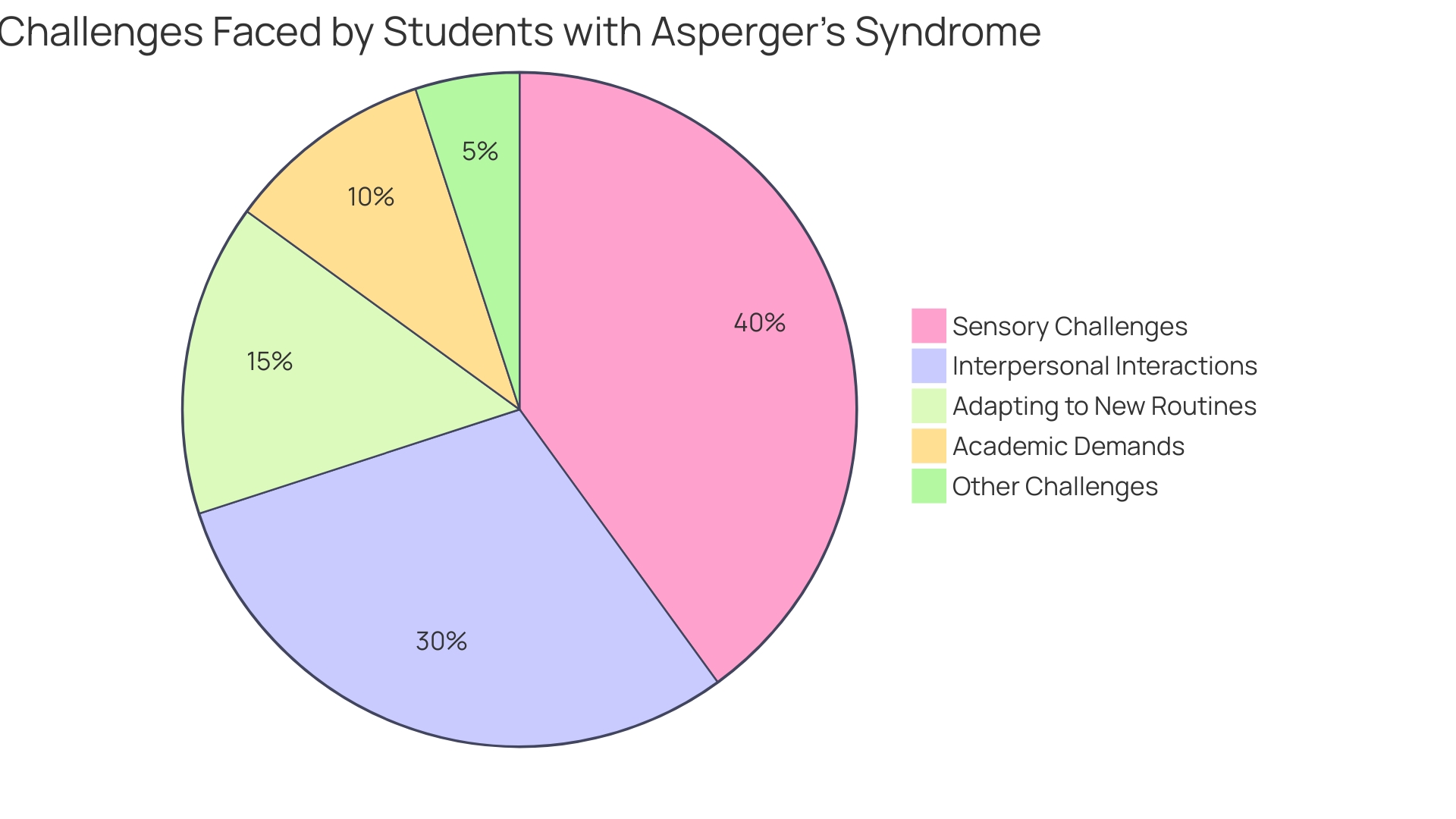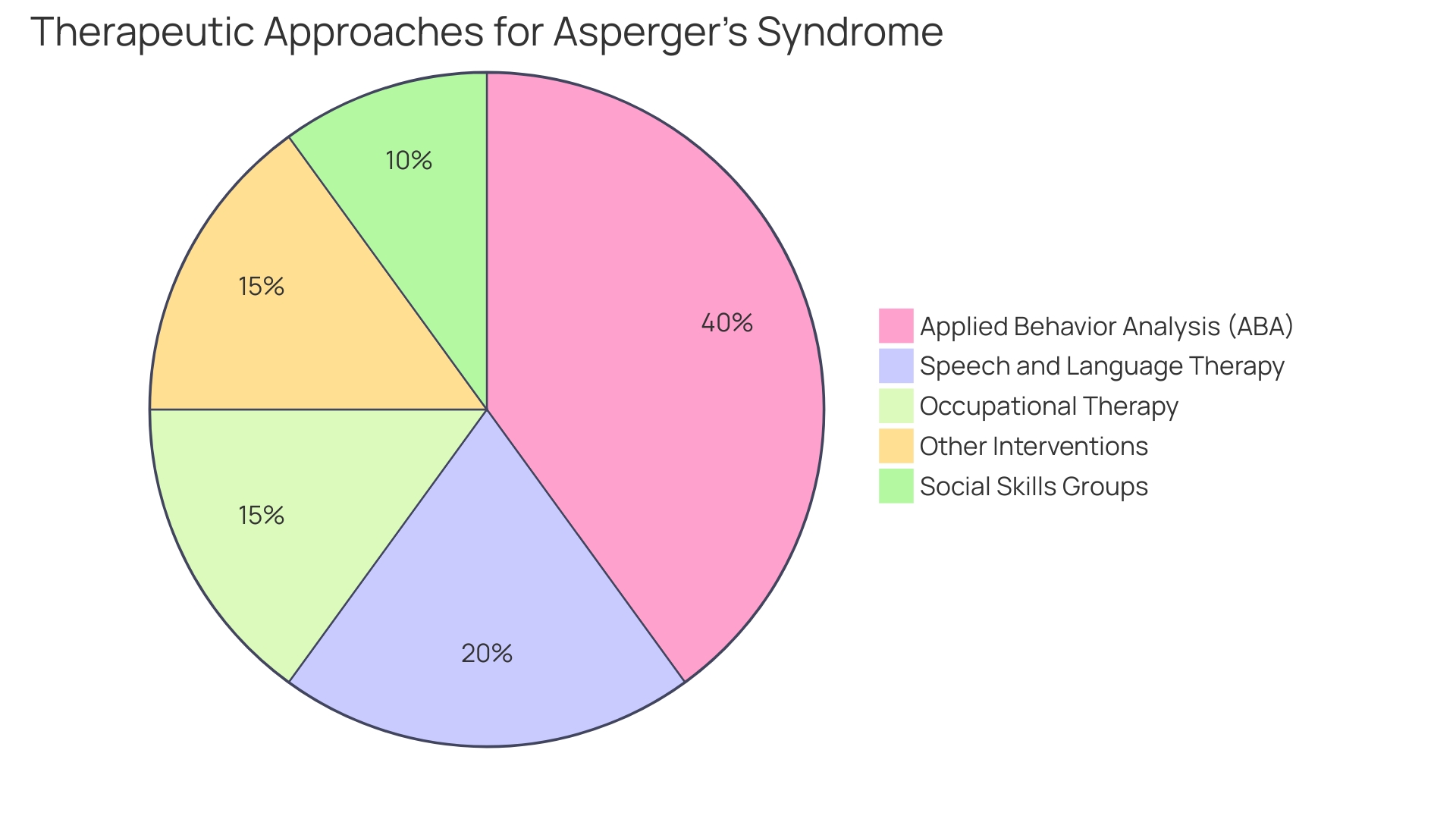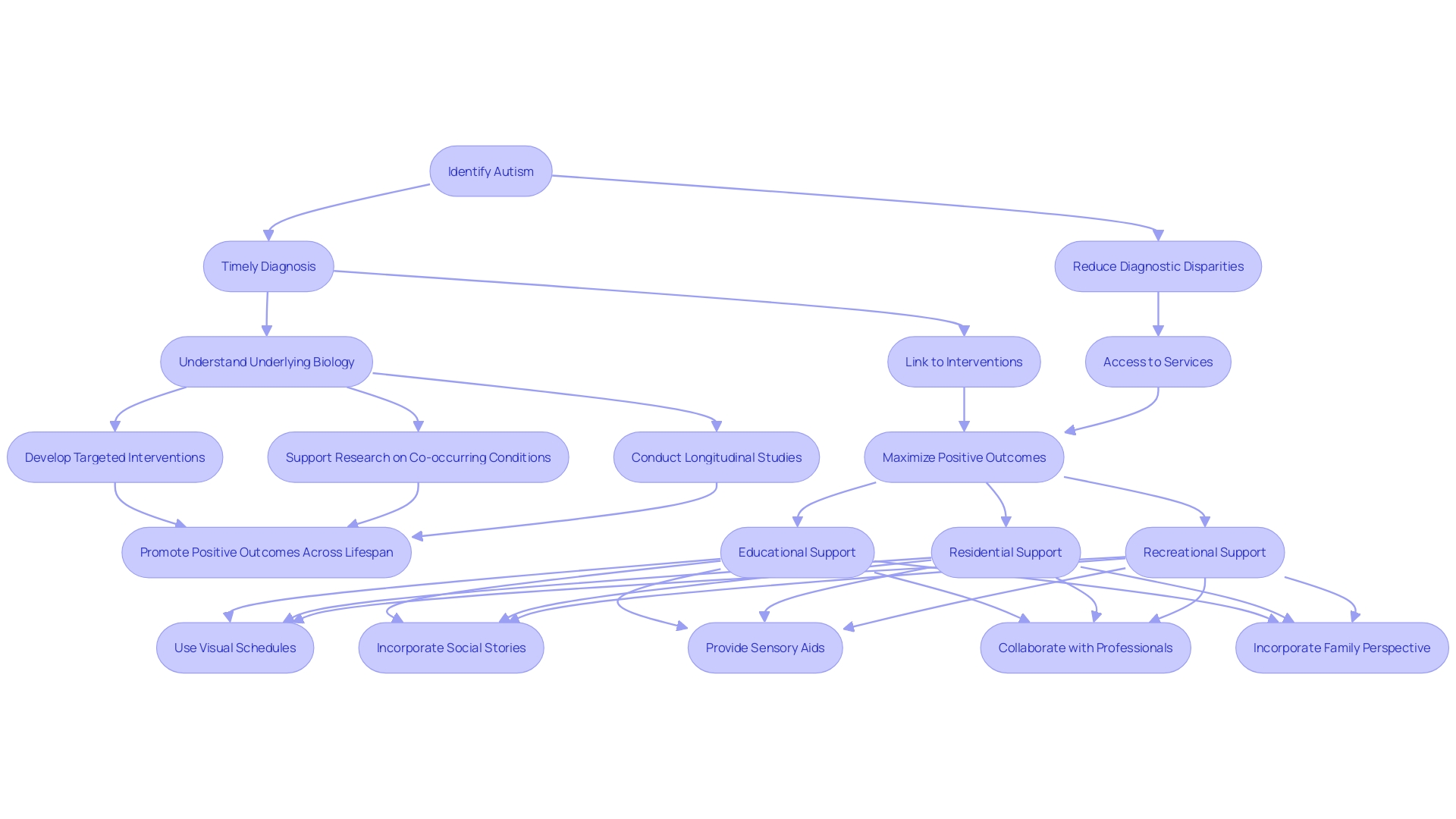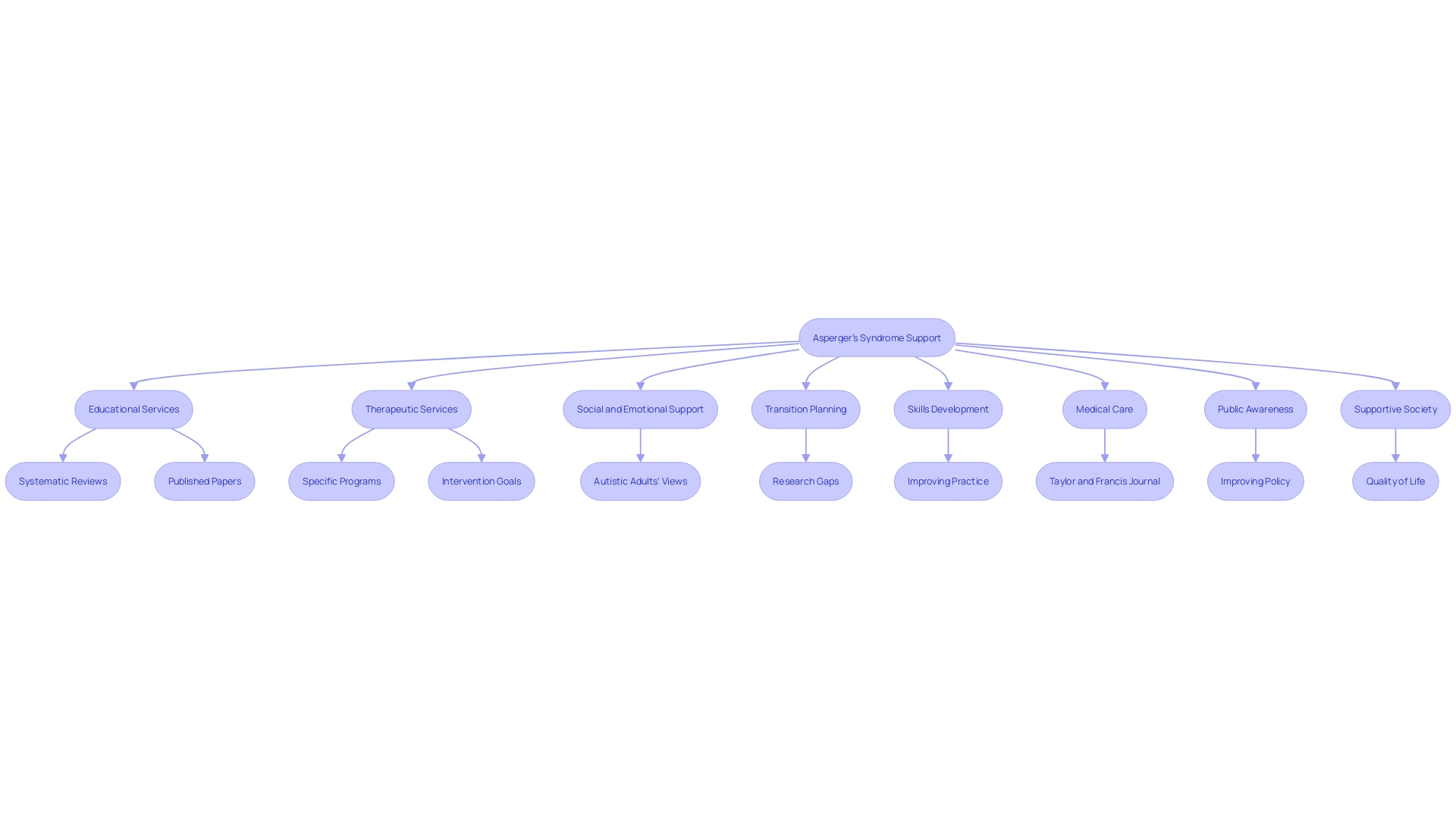Introduction
Asperger's Syndrome, a form of high-functioning autism, presents unique challenges in social interaction, communication, and behavior. Individuals with Asperger's often excel intellectually but struggle with social engagement and sensory environments. However, with supportive interventions, they can lead purposeful lives.
Early diagnosis and support are crucial in nurturing their development, and tailored educational experiences are essential for their academic and social growth. Therapeutic approaches, behavioral interventions, and family support play vital roles in helping individuals with Asperger's thrive. Additionally, medication and non-pharmacological therapies can help manage symptoms.
Long-term support and prevention strategies focus on continuous educational and therapeutic services, skill-building, and raising public awareness. By embracing a comprehensive view of high-functioning autism, we can create a more inclusive society that supports individuals with Asperger's Syndrome.
Key Characteristics and Challenges
A syndrome called Asperger's, frequently linked with high-functioning autism, is a neurodevelopmental disorder that poses distinctive challenges in interaction, communication, and behavior. Marked by concentrated interests, challenges in perceiving social subtleties, and a inclination towards repetitive patterns, people with Asperger's may thrive in cognitive capabilities yet struggle with social interaction and sensory surroundings. Despite these hurdles, they lead purposeful lives, and with supportive interventions, can manage the complexities of the condition. It's crucial to acknowledge the complete range of the effect of Asperger's on people to cultivate an atmosphere that supports their development and welfare.
Importance of Early Diagnosis and Support
Identifying the syndrome early can be a crucial step in fostering the development of those with the condition. It opens the door to tailored interventions and strategies that cater to their unique needs, fostering an environment where they can thrive. By creating a strong support system and ensuring access to influential resources, people with Asperger's are more prepared to navigate the intricacies of their environment. It's essential for those in the child's circle, including parents, teachers, and medical professionals, to identify the signs and take action to facilitate early intervention.
Autism Spectrum Disorder (ASD) encompasses a wide array of manifestations, with no singular experience defining the condition. Embracing this diversity is crucial, as is the recognition that autism is not a defect needing correction but a fundamental aspect of a person's identity. This nuanced understanding is vital when considering the nature of high functioning autism, which is characterized by subtle symptoms and higher cognitive abilities. Although 'high functioning' is not a formal medical classification, it provides a framework for understanding the varied experiences within the autism spectrum.
In the realm of autism research and services, collaborative efforts are key. The Interagency Autism Coordinating Committee (IACC) stands out as a beacon of this collaborative spirit. Comprising federal officials, autistic adults, family members, and other stakeholders, the IACC's mission is to enhance federal coordination and communication, reflecting a collective expertise that informs their outputs. While their work informs government actions, it's important to note that the views they express are those of the committee and not official federal positions.
In our pursuit of comprehension and assistance, it is also relevant to recognize the historical context of autism, specifically the heritage of Dr. Hans. His work during a dark period of history should not overshadow the strides made in autism research and the current efforts to support those on the spectrum.
As we move forward, it is imperative that we continue to educate ourselves and others about the complexities of autism. By doing so, we can ensure that every individual on the spectrum receives the respect, support, and opportunities they deserve.
Educational Support and Strategies
Customizing educational experiences to the requirements of individuals with Asperger's Syndrome is not only advantageous—it's crucial for their academic and interpersonal growth. These students often have distinctive learning profiles that can be supported through individualized education plans (IEPs) and specific accommodations. For instance, visual supports can make abstract concepts more concrete, structured routines can reduce anxiety around the unknown, and interpersonal skills training can bridge the gap in intuitive understanding of cues in social interactions.
In higher education, even though it is not formally monitored, students with challenges in interpersonal interaction or communication, including those with Asperger's syndrome, constitute a substantial portion of the student body. Their unique strengths, such as remarkable attention to detail and innovative thinking, can be assets in an academic environment. However, they also face distinct challenges, like adapting to new routines and navigating social interactions, which require thoughtful support.
Primary education also presents sensory challenges for students with a form of autism. Typical classroom environments, designed to stimulate, can inadvertently cause stress or anxiety. Sensory-based behaviors are a common feature of ASD, and some children may camouflage their discomfort, which can impact their self-esteem and identity.
Collaboration between educators, therapists, and other professionals is essential to craft an inclusive educational setting. This collaborative approach is reflected in efforts beyond the classroom, such as the initiative by Emirates and Dubai International Airport, where they work with local schools and autism groups to ease the travel experience for neurodivergent passengers.
Such inclusive practices not only support the well-being of students with autism spectrum disorder but also enrich the educational community as a whole. By embracing neurodiversity, educational institutions can become a microcosm of a society that values and leverages different ways of thinking and learning.

Therapeutic Approaches
Supporting individuals with Asperger's Syndrome involves a variety of tailored therapeutic approaches, with Applied Behavior Analysis (ABA) therapy being one prominent method. ABA therapy uses evidence-based methods to foster desired behaviors and reduce challenging ones, ultimately supporting the development of crucial life skills, improving interactions with others, and promoting better emotional control. Moreover, the integration of speech and language therapy, occupational therapy, and social skills groups targets specific challenges, fostering overall development and well-being.
The frequency of autism spectrum disorders, including Asperger's Syndrome, has increased significantly, as mentioned by Dr. Jan Blacher, who highlights a rise from 1 in 2,500 people to 1 in 36 today. This increase demonstrates a developing comprehension of autism within the medical field, acknowledging the range's variety, where certain people display high intelligence and communication skills. Consequently, adaptable intervention strategies are paramount.
Moreover, the urgency for early and accurate diagnosis is echoed by organizations such as The Autism Community in Action (TACA), which emphasizes that earlier behavioral therapy leads to better outcomes. This sentiment is supported by research underscoring the benefits of starting treatments at the earliest possible age. The commitment to bridging the diagnostic gap is further demonstrated by advancements in diagnostic tools capable of identifying autism spectrum disorders shortly after birth, reducing diagnostic delays.
While 'high functioning autism' is not an official medical term, it serves to distinguish those on the spectrum with milder symptoms and higher intellectual capabilities. These people still encounter significant challenges, particularly in social environments and managing sensory sensitivities. The evidence for varying therapeutic approaches, including group-based treatments, has strengthened over time, offering multiple protocols to address these challenges effectively. In the end, the goal is to provide people with Asperger's with the abilities and assistance necessary to effectively navigate through life.

Behavioral Interventions and Supports
Tailored behavioral interventions are not only advantageous but necessary for people with Asperger's Condition to successfully navigate their distinct difficulties. Tailored strategies such as using visual schedules can help create a predictable environment, which reduces anxiety and fosters self-regulation. Likewise, social stories serve as a powerful tool to illustrate social norms in a digestible format, aiding in the development of social skills. Furthermore, sensory aids can relieve unease arising from sensory sensitivities, which is widespread among people with Asperger's condition. It's important to note that each person's needs are distinct, and thus, behavior plans should be crafted and adjusted in collaboration with professionals who understand these intricacies. The objective is to foster an atmosphere where individuals with a certain condition can prosper, advocating for fairness and well-being as they participate in the main aspects of their lives in educational settings, their residences, and during recreational pursuits. Moreover, incorporating the family's perspective is crucial, as caregivers are integral to providing the necessary support for healthy development. This approach aligns with the aspirational goals of providing timely diagnosis and targeted interventions to maximize positive outcomes across the lifespan, as advocated by the Autism Self Advocacy Network (ASAN).

Medication and Non-Pharmacological Therapies
Managing the symptoms of a particular condition often requires an individualized treatment plan, as each instance presents distinct difficulties. In certain situations, healthcare providers might prescribe medications targeting specific symptoms, such as anxiety or difficulties with attention. Stimulant medications, commonly used for ADHD, have been found effective in increasing brain chemicals that boost thinking and focus. However, it's important to acknowledge that these medications are not a cure for the syndrome itself and they should be closely monitored because of possible side effects and interactions with other medications. In addition to medication, non-pharmacological therapies play a critical role. Cognitive-behavioral therapy (CBT), for example, plays a vital role in teaching people how to manage anxiety and develop coping strategies. Similarly, mindfulness practices can contribute to improving overall well-being. As we investigate the realm of high functioning autism, which includes people with Asperger's, we observe that despite having superior cognitive capabilities and less severe symptoms, they still encounter significant challenges, particularly in social environments. Therefore, integrating therapeutic approaches like CBT can be particularly beneficial in addressing these challenges. It's important to consult with healthcare professionals to receive comprehensive information about health, medical questions, and treatment options, including any risks or benefits regarding the use of medications.
Family Support and Parental Interventions
Improving the lives of people with Asperger's requires a comprehensive strategy, with active involvement of the family being a crucial element. Parents are not only advocates for their children but also crucial allies in navigating the complex landscape of services and therapies available. Understanding the complexities of this condition empowers parents to find the most helpful support groups and professional partnerships. These connections pave the way for personalized strategies that can greatly impact the person's development and happiness.
As Lil's story from Southampton, UK demonstrates, transitions such as moving from a special school to a community-based setting like Friends of St James Park can be a source of stress, but also an opportunity for growth and development when navigated with care and preparation. The creation of digital stories is one innovative method that supports this transition, offering a means to lessen anxiety and build familiarity with new environments.
Dr. Offord's perspective reminds us that creating an equitable 'race' for our children, including those with disabilities, is about more than just meeting needs; it's about appreciating their contributions, alleviating stress, and ensuring that families have the support they require. This holistic approach to mental health and well-being underscores the importance of a nurturing home atmosphere, where children are understood and their capabilities are celebrated.
Staying informed about the latest developments in treatments and therapies is essential for providing the best care. Parents must critically assess the information available, especially online, to discern beneficial treatments from those that are unproven or potentially harmful. As suggested by experts, continuous research empowers caregivers to make informed decisions about medications and interventions, striking a balance between hope and caution.
Ultimately, the achievements of people with Asperger's are strongly linked to the commitment and well-informed engagement of their families. Through education, community engagement, and a commitment to creating a supportive environment, parents can significantly contribute to their child's ability to thrive in all areas of life.
Long-Term Support and Prevention Strategies
Assisting people with Asperger's Syndrome requires a comprehensive strategy to guarantee they can live satisfying lives. Central to this is the provision of continuous educational and therapeutic services tailored to meet their needs. A focus on social and emotional support is equally important, which aligns with the insights of Dr. David (Dan) R. Offord, who emphasized the significance of equitable and well-supported participation for children and youth with disabilities. Applying these principles to adulthood, transition planning becomes a crucial step, preparing people for independence and the obligations that come with it.
Developing skills is a crucial approach, not only for promoting independence but also for empowering self-expression among people with Asperger's condition. This empowerment is crucial as they face various life challenges. As highlighted by Christopher McDougle, MD, the lack of services for autistic adults post-high school underlines the importance of quality medical care for this population, similar to their neurotypical counterparts.
Moreover, the general public's awareness and comprehension of Asperger's Syndrome are crucial. This knowledge can help to dismantle stigma and pave the way for a more inclusive environment. Recent news stories demonstrate the intricacy of Autism Spectrum Disorder (ASD) and emphasize the need for comprehending how it affects people uniquely throughout their lifetime. By embracing a comprehensive view of high-functioning autism, which refers to those on the spectrum with milder symptoms and higher cognitive capabilities, we can recognize the diverse challenges they encounter, particularly in social situations and sensory processing.
The progress towards a society that supports individuals with Asperger's condition sufficiently is still ongoing. Efforts such as the Adult Autism Health Resources initiative by Harvard Medical School exemplify the global impact of such endeavors. Through education and systemic change, we can ensure that 'the race is fair' for those with Asperger's Syndrome, echoing Dr. Offord's vision for mental health and equity.

Conclusion
In conclusion, individuals with Asperger's Syndrome face unique challenges in social interaction, communication, and behavior. However, with supportive interventions and tailored educational experiences, they can lead purposeful lives. Early diagnosis and support are crucial for nurturing their development.
Therapeutic approaches, behavioral interventions, and family support play vital roles in helping individuals with Asperger's thrive. Personalized interventions, such as Applied Behavior Analysis (ABA) therapy and social skills groups, promote overall development and well-being. Medication and non-pharmacological therapies, like cognitive-behavioral therapy (CBT), contribute to symptom management and well-being.
Family support and parental interventions are essential. By staying informed, connecting with support groups, and advocating for their children, parents can significantly impact their growth and well-being. Long-term support and prevention strategies focus on continuous educational and therapeutic services, skill-building, and raising public awareness.
By embracing a comprehensive view of high-functioning autism and recognizing the diverse challenges faced by individuals with Asperger's, we can create a more inclusive society. Through education, community engagement, and support, we can ensure individuals with Asperger's have the opportunities they deserve to thrive in all areas of life.




